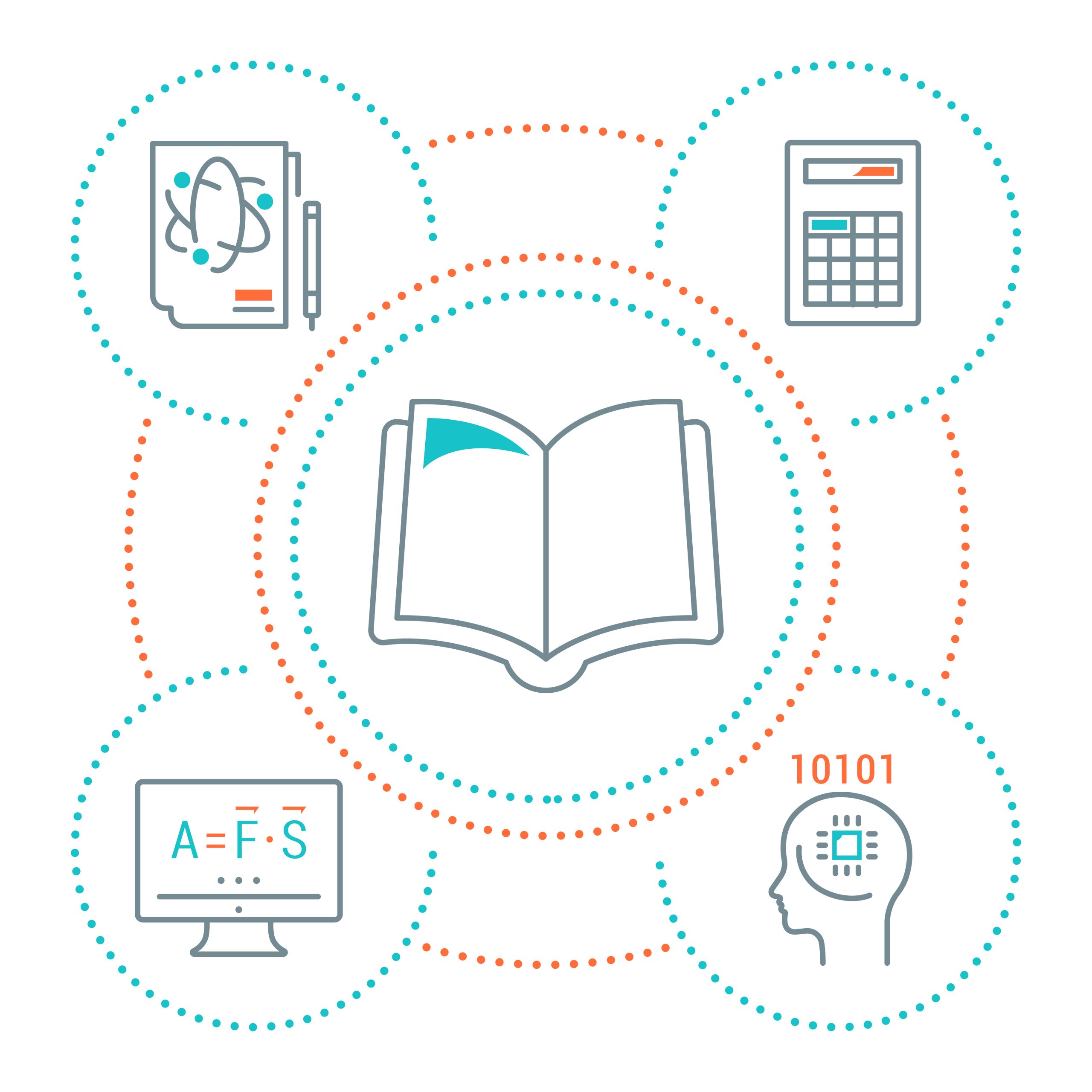Hack Reactor vs. Full Stack Academy Comparison

In this article
- What Is Hack Reactor?
- What Is Full Stack Academy?
- Hack Reactor vs. Full Stack Academy: What Are the Main Differences?
- Hack Reactor vs. Full Stack Academy: Learning Format
- Hack Reactor vs. Full Stack Academy: What's on the Curriculum?
- Hack Reactor vs. Full Stack Academy: How Much Does It Cost?
- Hack Reactor vs. Full Stack Academy: Job Outcomes
- Hack Reactor vs. Full Stack Academy: Pros and Cons
All the information provided in this article is published in good faith and for comparison purposes only. It is accurate as of October 2021.
As the cost of higher education continues to rise, online courses and bootcamps have in recent years become a viable alternative for those who want training in highly technical and well-compensated fields—without the steep price tag or years-long time commitment.
Spurring the e-learning revolution is the growing demand across all industries for software engineers, designers, data scientists, and cybersecurity professionals, which has resulted in courses and bootcamps that promise to prepare students for those roles—often from the comfort of their home and at the student’s own pace.
The rise of online bootcamps has been a good thing, with The New York Times reporting that virtual learning has been a “great equalizer” for adults and has made training and upskilling more accessible. During the Covid-19 pandemic, in particular, the research found that e-learning has the potential to close a longstanding skills gap and democratize user engagement.
Many courses, designed specifically with a bootcamp-to-workforce pipeline in mind, have also optimized their programs to focus on the skills students need in order to land the job they want, thus maximizing efficiency and giving graduates a competitive advantage.
- Not ready to pick a bootcamp just yet? Head over to our bootcamp criteria guide.
- Want to find out how Springboard stacks up against other bootcamps? Check out our bootcamp comparison guide.
What Is Hack Reactor?
Hack Reactor is a San Francisco-based coding school that offers in-person and online bootcamps in software engineering. Unlike other bootcamps, which teach courses across multiple disciplines and professions, Hack Reactor only offers a software engineering program that students can take full-time in-person or online (12 weeks), or part-time online (9 months). Regardless of course format, all classes are synchronous, which means students are expected to attend live lectures, webinars, participate in real-time coding exercises, and collaborate with peers.
Hack Reactor’s courses are administered in three phases: a “Precourse” period in which students do 90-120 hours of prep work to develop a foundation in Javascript, HTML, CSS, and more; a “Junior” phase of five weeks where students are taught computer science fundamentals; and a “Senior” phase of seven weeks where students work on capstone projects and portfolios.
The school has physical campuses in Austin, Denver, Los Angeles, Seattle, San Francisco, and New York City.
What Is Full Stack Academy?
Full Stack Academy is a New York-based coding school that offers courses in software engineering, cybersecurity, and data analytics. It has one physical campus in New York City where students can take in-person classes, and offers an identical online program to students who prefer to study remotely. Its bootcamps take 10-26 weeks to complete depending on whether students enroll on a full-time or part-time basis. All courses are taught synchronously and students are expected to attend live classes, participate in real-time coding exercises, and collaborate with peers.
Similar to Hack Reactor, Full Stack Academy’s courses are administered in phases. For its software engineering program, students undergo an introductory course taken remotely in which they learn the foundations of HTML, CSS, Javascript, and the web development environment. Later phases, which can be taken in-person, cover front- and back-end development, guided team projects, personal projects, and capstone projects.
The school also offers an 11-week summer coding bootcamp, a range of short-form introductory courses to coding, cybersecurity, and data analytics, and a Grace Hopper Program, designed specifically for women, trans, and nonbinary students, which teaches the immersive software engineering course at no upfront cost—students only pay upon securing a job after graduation.
Hack Reactor vs. Full Stack Academy: What Are the Main Differences?

There are a few fundamental differences between Hack Reactor and Full Stack Academy.
| Hack Reactor | Full Stack Academy |
| Average course takes 12 weeks to complete in-person or online. | Average course takes 10-26 weeks to complete in-person or online. |
| Physical campuses in Austin, Denver, Los Angeles, Seattle, San Francisco, and New York City | Physical campus in New York City only |
| Courses in software engineering only | Courses in software engineering, cybersecurity, and data analytics |
| Typical school day 9 a.m.-8 p.m. | Typical school days 9:30 a.m.-6:30 p.m. |
If you’re interested in a bootcamp that comes with a job guarantee, individualized mentorship, flexible asynchronous classes, and more course options, Springboard offers comprehensive, mentor-supported bootcamps in data science, UI/UX design, software engineering, cybersecurity, machine learning engineering, and tech sales.
Hack Reactor vs. Full Stack Academy: Learning Format
- Hack Reactor offers synchronous classes in-person, online full-time, and online part-time. A full-time Hack Reactor course in software engineering can be completed in 12 weeks, with classes taking place Monday to Friday, 9 a.m. to 8 p.m. During those hours, students can expect to participate in live coding sessions, attend lectures, program in pairs, work on class-based projects, attend presentations, and do coding sprints. All students are given access to one-on-one career coaching, portfolio and CV-building support, and mock interview practice.
- Full Stack Academy also offers synchronous classes in-person in New York City, online full-time, and online part-time. Students who attend Full Stack Academy’s courses full-time can expect to complete the software engineering course in 17 weeks, with classes taking place Monday to Friday, 9:30 a.m. to 6:30 p.m. During those hours, students can expect to attend live lectures and Q&A sessions, program in pairs, perform group reviews of code, and complete practice assessments. Students who enroll part-time also attend live, synchronous classes, although these are spread out to three times a week, with evening classes running from 6:40 p.m-9:40 p.m. and Saturday classes running from 9 a.m.-1 p.m. Students are also given mentorship and career coaching.
Hack Reactor vs. Full Stack Academy: What’s on the Curriculum?

Hack Reactor and Full Stack Academy each focus on a limited number of disciplines. Hack Reactor teaches only software engineering, with additional professional development short courses related to coding. Full Stack Academy offers introductory prep courses and core courses across multiple fields.
| Hack Reactor | Full Stack Academy |
| Software engineering | Software engineering |
| Methodologies + requirement gathering | Data Analytics |
| Networking + reactive programming | Cyber security |
| Computer architecture + IoT | |
| Microservices + orchestration | |
| Algorithms + data structures |
Interested in a tech career that isn’t offered by Hack Reactor or Full Stack Academy? In addition to software engineering, Springboard’s comprehensive bootcamps include cybersecurity, data analytics, UI/UX design, machine learning engineering, data science, data engineering, and tech sales.
Hack Reactor vs. Full Stack Academy: How Much Does It Cost?

When it comes to online courses and bootcamps, the adage that you get what you pay for often rings true. Free or low-cost courses can be accessible, but often lack personalized support from instructors and mentors. Higher-cost courses can have a higher barrier to entry, but typically come with a comprehensive support system.
- Hack Reactor’s full-time course cost around $17,980 upfront, with a higher cost for deferred tuition and income share agreements.
- Full Stack Academy’s full-time course cost around $17,811, with personal loan options available.
Looking for a more affordable but still rigorous introductory course to dip your toes into a subject before committing to a bootcamp? Springboard’s introductory courses start from $349 and come with both mentor and career coach support from day one. Most introductory courses can be completed in four weeks, and the cost of an introductory course can be applied toward a full bootcamp at a later time.
Hack Reactor vs. Full Stack Academy: Job Outcomes
One of the indicators of an effective bootcamp or online course is whether students land an industry job upon graduation.
- Hack Reactor has a 75% success rate at placing students in jobs within six months of graduation.
- Full Stack Academy reports that 59% of its graduates are employed in a related field within six months of graduation.
Looking for a course that offers a job guarantee? Springboard’s programs guarantee that graduates will land a job in a related field within six months of graduation or they’ll issue a full tuition refund.
Hack Reactor vs. Full Stack Academy: Pros and Cons

In the saturated e-learning market, both Hack Reactor and Full Stack Academy have emerged as significant players because their courses offer many benefits. But what works for one student may not work for another.
Hack Reactor
- Pros: Hack Reactor’s synchronous nature may be beneficial for students who want real-time accountability from instructors and classmates, and who have the time to commit 50-60 hours a week to live classes. The school’s range of financing options—including upfront payment, split payment, deferred payment, and income share agreements— also offers flexibility to students, allowing people to enroll in courses even if they can’t afford an upfront payment. Mentors, tutors, and careers coaches support students through course projects, classwork, and job searches to best prepare graduates for job interviews and the workforce. Hack Reactor’s support network is similar to that of Springboard, although Springboard offers more courses and specializes in more career tracks. Springboard also offers scholarships to those facing financial hardships or from historically underrepresented groups.
- Cons: One of Hack Reactor’s strengths— that its courses are synchronous with rigid start and end times and the expectation that students engage with coursework and classes 50-60 hours a week—is also one of its weaknesses. The synchronous nature of its courses means students lack flexibility and are unable to go at their own pace. In comparison, other mentor-led bootcamps such as Springboard help students meet similar outcomes (skills training, career support, job guarantee) while offering greater flexibility and programs optimized for self-paced learning.
Full Stack Academy
- Pros: In addition to its core courses, which are open to all applicants, Full Stack Academy also offers a shorter summer school program and a Grace Hopper program that specifically creates opportunities for women, trans, and nonbinary students. Mentors, tutors, and careers coaches also support students through course projects, classwork, and job searches to best prepare graduates for job interviews and the workforce. Full Stack Academy’s support network is similar to that of Springboard, although Springboard offers more courses, specializes in more career tracks, and also offers scholarships to students from historically underrepresented communities.
- Cons: Similar to Hack Reactor, Full Stack Academy’s synchronous nature for both full-time and part-time students, in-person and remote, means it lacks flexibility and requires a significant time commitment. Its in-person course offers are also limited to its New York City campus.
Interested in a bootcamp that offers customized career counseling, regular calls with industry mentors from day one, and a flexible program that allows you to go at your own pace? All of Springboard’s courses are built from the ground up to be fully online and asynchronous. To ensure you get the support you need while you learn at your own pace, every student is paired with an expert from Springboard’s vast network of mentors to give them guidance and support for projects, job hunting, and career decision-making.
Not ready to enroll just yet? Read more about the factors you should consider while picking a program in our bootcamp criteria guide.
Disclaimer: We’ve worked hard to ensure the information in this comparison guide is accurate and up-to-date. However, mistakes happen. If you spot an error, please get in touch with us at hello@springboard.com and we’ll correct it right away.
Since you’re here…
Interested in a career in data analytics? You will be after scanning this data analytics salary guide. When you’re serious about getting a job, look into our 40-hour Intro to Data Analytics Course for total beginners, or our mentor-led Data Analytics Bootcamp—there’s a job guarantee.


